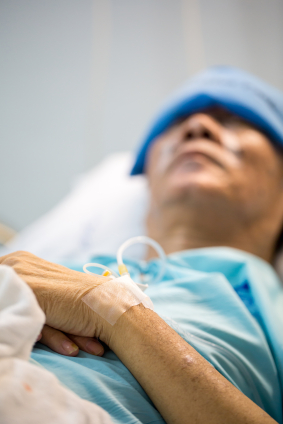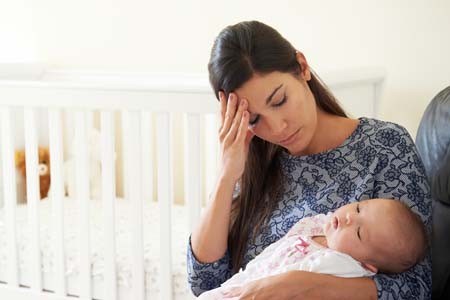Allopregnanolone Injection Eliminated Post-Partum Depression in Four Women
In a small proof-of-concept study, researcher Stephen J. Kanes and colleagues showed that injections of allopregnanolone could nearly eliminate symptoms of post-partum depression.
Allopregnanolone is the main metabolite of the hormone progesterone. Rapid changes in hormone levels following delivery are thought to cause post-partum depression.
In the study, four women with post-partum depression were given injections of SAGE-547, a proprietary solution of allopregnanolone. The dose was adjusted over 12 hours until it approximated prenatal levels of allopregnanolone. This level was maintained for 36 hours, and then the women were weaned off the SAGE-547 over another 12 hours. As soon as the women began injections of SAGE-547, their depression began to improve, and this lasted after they stopped receiving the injections. By 84 hours after beginning treatment, depression scores had improved by 81%.
Kanes and colleagues, who presented this research at the 2016 meeting of the Society of Biological Psychiatry, will follow up this study with placebo-controlled trials of SAGE-547.
Neurosteroid Allopregnanolone May Improve Bipolar Depression
Sherman Brown of the University of Texas Southwestern reports that the neurosteroid allopregnanolone has positive effects in bipolar depression. Patients in Brown’s study received doses of 100mg capsules twice daily during the first week, then one capsule in the morning and two capsules in the evening during the second week, and two capsules in the morning and three capsules in the evening during the third week.
Neurosteroids can change the excitability of neurons through their interactions with the neurotransmitters that carry signals from neurons across synapses. Among the various types of neurotransmitters, GABA plays an inhibitory role, while glutamate is responsible for excitability. Allopregnanolone, which is naturally produced in the body, has positive effects on GABA receptors and inhibitory effects on glutamate NMDA receptors, so that it increases the balance of inhibition (GABA) over excitation (glutamate).
Therapeutic Potential of Neurosteroids
 Neurosteroids have shown promise in the treatment of anxiety and depression.
Neurosteroids have shown promise in the treatment of anxiety and depression.
Allopregnanolone, a natural metabolite of the gondal steroid progesterone, is a neurosteroid that acts as a positive modulator of synaptic and extrasynaptic GABA-A receptors and exerts effects without the development of tolerance.
Researcher Mike Rogawski at the University of California, Davis developed an intravenous formulation of allopregnanolone that is being studied as a treatment for traumatic brain injury. The formulation was provided on an emergency use basis to stop treatment-resistant status epilepticus (non-stop seizures) in patients in intensive care who had been unresponsive to all medications and were placed in a barbiturate coma. When barbiturates were stopped, their seizures returned. All four intensive care patients who were treated with allopregnanolone had their status epilepticus cease and were able to go home. This included a 23-year-old who had been hospitalized with refractory status epilepticus for over 90 days.



